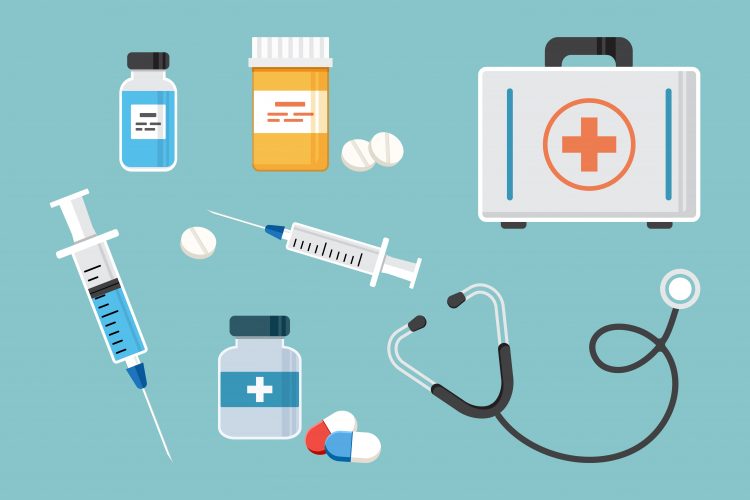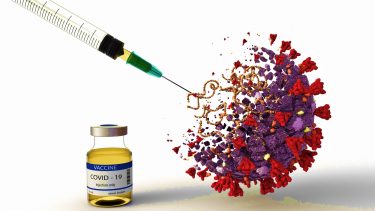100 Days Mission: “landmark collaboration” to protect people against future pandemics
Posted: 4 June 2021 | Hannah Balfour (European Pharmaceutical Review) | No comments yet
Governments and life science leaders agree to work towards slashing the time to develop and deploy interventions and diagnostics for future pandemic threats to 100 days.


The UK Government has announced a landmark collaboration between life science industry leaders and governments. The collaborators will work on what has been called the ‘100 Days Mission’ – to slash time the time taken to develop and deploy new diagnostics, therapeutics and vaccines against future pandemic threats to 100 days to protect the public.
The 100 Days Mission was announced at the conclusion of the G7 health event on life sciences. According to the UK Government’s Department of Health and Social Care, following discussions at the G7 Health Ministers’ Meeting, Chief Executive Officers (CEOs) and representatives of companies among those leading the efforts to develop COVID-19 diagnostics, vaccines and treatments backed the ambition of the 100 Days Mission set out by the pandemic preparedness partnership.
The government and industry leaders agreed to work towards a plan to develop and deploy high-quality diagnostics, therapeutics and vaccines in just 100 days after a new pandemic threat is identified. Success, they said, would take the great achievement of delivering COVID-19 vaccines in 326 days to the next level and protect people from potential future pandemics.
Lord Bethell, Minister for Innovation at the Department of Health and Social Care, and Sir Patrick Vallance, Government Chief Scientific Adviser and pandemic preparedness partnership Chair, convened sessions between industry and experts to discuss overcoming challenges around the development, production and deployment of diagnostics, therapeutics and vaccines at scale; and effective sharing of data, methods and standards to facilitate robust clinical trials.
The aim of the pandemic preparedness partnership is to ensure the world is better protected against future pandemics. To achieve the ambitious target of 100 days, new therapeutics, vaccines and diagnostics against potential future pathogens should be part-developed before the next pandemic starts. This will involve sustained innovation and collaboration between large and small companies, academic and medical researchers, regulators and global health bodies.
The Department of Health and Social Care stated that this collective aspiration to support the 100 Days Mission represents a significant milestone and will ensure industry is part of a robust collaboration alongside governments, international organisations and academia over the coming months and years to take action towards a common goal: protecting people from future pandemics.
Government Chief Scientific Adviser, Sir Patrick Vallance commented: “Partnerships between academia, industry, international organisations and governments have been key in responding to this pandemic and scientists and engineers have played a huge role in making safe and effective COVID-19 vaccines available in just 300 days. This has been an incredible achievement.
“However, the first 100 days in a pandemic are crucial to changing the course of a disease. In those three months, diagnostics, therapeutics and vaccines are key weapons. Given the extent of the social, economic and health impacts caused by COVID-19, the 100 Days Mission is rightly ambitious and sets a goal for us to which we can all aspire.
“The last 18 months has seen exceptional collaborative working between industry, academia, international organisations and governments, which has enabled a host of safe and effective COVID-19 vaccines, therapeutics and diagnostics to be developed in record time.


“Over 2 billion vaccines have been delivered across the world to tackle a virus that there was very limited knowledge of a little over a year ago. The Oxford/AstraZeneca collaboration alone has seen 500 million vaccine doses span 160 countries. Data shows the vaccination roll-out programme has already saved 13,200 lives and prevented 39,700 hospitalisations in England alone.
“Following discovery through clinical trials, the use of dexamethasone has cut deaths from COVID-19 by up to a third and has likely saved thousands of lives – an important example of the impact such trials can have – while lateral flow devices provide quick and accurate information to identify positive cases, immediately breaking chains of transmission.
“Nevertheless, the pandemic has seen significant loss of life and disruption to economies and societies around the world. While this pandemic is still being tackled, leaders in public and private sectors agree that steps must be taken now to ensure that we are better prepared for the future.”
Jean-Christophe Tellier, chair of BCR and President of International Federation of Pharmaceutical Manufacturers and Associations (IFPMA) said: “The life science industry has stepped up to the COVID-19 pandemic in an unprecedented way, with a number of safe and highly effective vaccines, as well as essential diagnostics and a number of important treatments. While it is too soon to learn all the lessons of the current pandemic, three things are clear.
“Early detection and immediate and unhindered sharing of pathogens is essential. Science and the innovative ecosystem is a powerful tool to research, develop and manufacture solutions to prevent and tackle pandemics. And finally, partnerships and collective action have been the foundation for success towards a shared goal of equitable and fair access for all.
“The 100 Days Mission provides an important framework for future pandemic preparedness response, and a clear statement of a shared ambition to compress the already amazing achievement of 326 days for a COVID-19 vaccine to 100 days.”
Related topics
Big Pharma, Biologics, Drug Development, Drug Discovery, Drug Manufacturing, Industry Insight, investment, Regulation & Legislation, Research & Development (R&D), Technology, Therapeutics, Vaccines, Viruses
Related organisations
International Federation of Pharmaceutical Manufacturers and Associations (IFPMA), Pandemic preparedness partnership, UK Government









